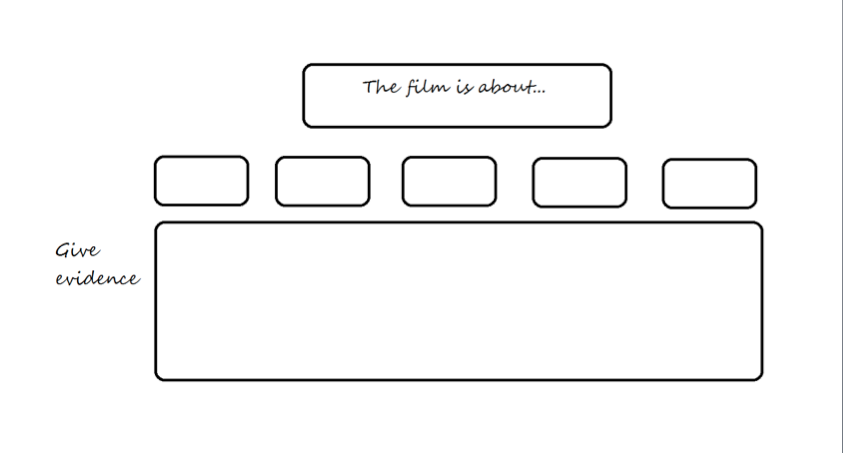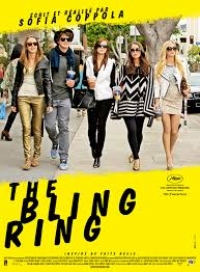The Bling Ring (2013)
Aneta Ostrycharz, Joanna Czaja
Cele lekcji
– Students will learn about the youth delinquency and teen angst film
– Students will have the opportunity to express their feelings and opinions about the movie
– Students will discuss the key terms (notions) and issues in the film
– Students will be able to talk about the characters, their good and bad sides, their motivations, drives, dreams etc.
-Students will have a chance to discuss the characters’ relations with their relatives and other teens.
Formy pracyworking in pairs and groups Metody pracypresentation, |
Przebieg lekcji
| Stages | Guidelines for teachers: | Sub-aim / detailed aim | Time | Interaction | Materials |
| Presentation | A group of students/a pair is asked in advance to watch the movie and to present some general information about The Bling Ring, such as the director of the film, cast, the genre affiliation, and also awards and the criticism the film received. Next, the most controversial issues are presented and commented on. The students can present their feelings and points of view about the characters’ actions. | -characteristics of the delinquent youth and teen angst film,
-discussing the key terms, -expressing opinions about the film, |
10 | Presentation: student
-> students Discussion |
The Bling Ring 2008,
directed by Sofia Coppola. Based on: The Suspects Wore Louboutins by Nancy Jo Sales |
| Group work | The students are divided into small groups (2-4 people per a group) and they are asked to list 5 problems/crimes and to write a cause and an effect sequence according to their feelings, what they think was the reason of that particular problem/crime, what the effects were and how the character could have prevented them. | -analysing the teens’ problems
-writing a cause and effect sequence -discussing teens’ wrong choices that were motivated by their dreams and the causes of them |
10 | Group work,
A discussion within the group |
|
| Pair work | The students work in pairs They have to fill in the graph titles „The film is about…” They have to come up with their ideas. Moreover, they are obliged to prove their ideas by providing evidence from the film. | -sharing opinions about the film’s themes
-discussing different points of view -analysing the students’ own approaches to the film |
5 | Pair work | |
| Discussion:Debate | The students are asked to work in small groups and their task is to assign the characters to the categories, putting them on the scale from 1 to 5 (from rather not to completely). Each character’s name has to be written down only once. The difficulty is that the students have to negotiate where to place a particular character and then substantiate their decisions during the whole class debate. | -analysing the characters’ motivations and actions
-expressing and supporting the students’ outlooks on the film -discussing different statements |
10 | Group work, followed by
a whole class debate |
1. Presentation (approximately 10 minutes):
Let the authors of the project briefly introduce the information about the film and present and comment the most critical receptions of the film. Students should focus on:
– the director of the film
– the genre affiliation
– the cast
– the awards the film received
– the critical reception
– the most controversial issues (students’ feelings/points of view)
2. Group work, a discussion within a group (approximately 10 minutes):
1) Divide the students into small groups (3-4 people per group should be enough to give anyone a chance to express his/her point of view).
2) Give the students the handouts with the table (each group should receive a table with a different name of the character of the film).
3) Start a discussion within each of the groups. Let them review 5 most significant crimes committed by the character and ask them to write a cause and an effect sequence according to their feelings (what was the reason for that particular problem/crime, what the results were and how the character could have prevented them).
| The characters taken into account:
– Rebecca Ahn – Marc Hall – Chloe Tainer – Nicki Moore |
The criteria from the table:
– Problem/crime -Dreams, motivations, reasons – Do others influence him/ her to do that? – Partners in crime – How did he/ she feel after the action? – What was the effect of that action? – Did he/she regret his/her actions? |
After 5 minutes, ask each of the groups to share information about their characters with the whole class. Involve the rest of the class to express their opinions about the discussed juvenile delinquents.
3. Pair work (approximately 5 minutes):
Divide the students into pairs and distribute the graph titled ‚The film is about…’
Let the students fill it in with their ideas and provide the evidence from the film.

of the film. Discuss different points of view and analyze the students’ individual approaches to the film.
4. Discussion: debate – group work, then a whole class debate (approximately 10 minutes):
Divide the students into small groups and familiarize them with the categories and the scale of 1-5, with 1 representing rather not, 2 – sometimes, 3- usually, 4 – yes, and with 5, the highest level of agreement – completely. Let the students match the characters (Rebecca Ahn, Marc Hall, Sam Moore, Nicki Moore, Chloe Tainer) with the numbers on the arrows from 1 to 5, according to their opinions after watching the film. The difficulty is that every character has to be put on the scale only once. To make the discussion more fruitful, ask the students to note down some arguments supporting their points of view during the exercise. After 5 minutes, start a discussion by asking the groups where they have put a particular character on the scale.
The categories are:
– Did the character follow his or her dreams ?
– Did the character feel the pangs of conscience after committing the crimes ?
– Had the character plead guilty to charges against him/her ?
– Had his/her actions been enforced by peer pressure?
– Did the character show off the things/clothes/gadgets to others which he/she had stolen from one of the houses ?
– Was the character treated by others after his/her outfit changed?
Załączniki
Exercise 1. Group work:
Katie Chang as Rebecca Ahn
| Problem / crime | Dreams, motivations, reasons | Do others influence him/ her to do that? | Partners in crime | How did he/ she feel after the action? | What was the effect of that action? | Did he/she regret his/her actions? |
| 1. | ||||||
| 2. | ||||||
| 3. | ||||||
| 4. | ||||||
| 5. |
Israel Broussard as Marc Hall
| Problem / crime | Dreams, motivations, reasons | Do others influence him/ her to do that? | Partners in crime | How did he/ she feel after the action? | What was the effect of that action? | Did he/she regret his/her actions? |
| 1. | ||||||
| 2. | ||||||
| 3. | ||||||
| 4. | ||||||
| 5. |
Claire Julien as Chloe Tainer
| Problem / crime | Dreams, motivations, reasons | Do others influence him/ her to do that? | Partners in crime | How did he/ she feel after the action? | What was the effect of that action? | Did he/she regret his/her actions? |
| 1. | ||||||
| 2. | ||||||
| 3. | ||||||
| 4. | ||||||
| 5. |
Emma Watson as Nicki Moore
| Problem / crime | Dreams, motivations, reasons | Do others influence him/ her to do that? | Partners in crime | How did he/ she feel after the action? | What was the effect of that action? | Did he/she regret his/her actions? |
| 1. | ||||||
| 2. | ||||||
| 3. | ||||||
| 4. | ||||||
| 5. |
Exercise 2. Pair work

Exercise 3. Group work -> Discussion
Match the characters (Rebecca Ahn, Marc Hall, Sam Moore, Nicki Moore, Chloe Tainer) to the numbers on the arrows from 1 to 5, according to your opinion after watching the film. Remember that every character has to be put on the scale only once (1 – rather not, 2 – sometimes, 3- usually, 4 – yes, 5 – completely). Note down some arguments supporting your point of view.



